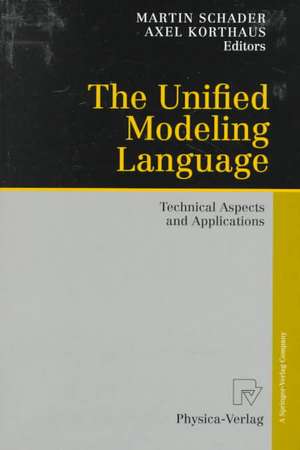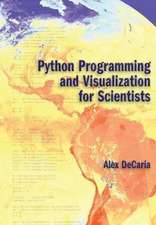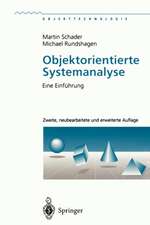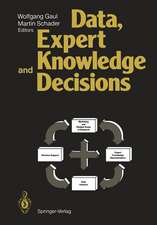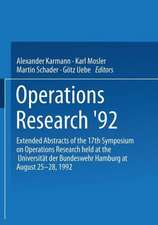The Unified Modeling Language: Technical Aspects and Applications
Editat de Martin Schader, Axel Korthausen Limba Engleză Paperback – 16 apr 1998
Preț: 645.31 lei
Preț vechi: 806.64 lei
-20% Nou
Puncte Express: 968
Preț estimativ în valută:
123.49€ • 134.10$ • 103.74£
123.49€ • 134.10$ • 103.74£
Carte tipărită la comandă
Livrare economică 22 aprilie-06 mai
Preluare comenzi: 021 569.72.76
Specificații
ISBN-13: 9783790811056
ISBN-10: 379081105X
Pagini: 292
Ilustrații: VIII, 282 p. 43 illus.
Dimensiuni: 155 x 235 x 15 mm
Greutate: 0.41 kg
Ediția:Softcover reprint of the original 1st ed. 1998
Editura: Physica-Verlag HD
Colecția Physica
Locul publicării:Heidelberg, Germany
ISBN-10: 379081105X
Pagini: 292
Ilustrații: VIII, 282 p. 43 illus.
Dimensiuni: 155 x 235 x 15 mm
Greutate: 0.41 kg
Ediția:Softcover reprint of the original 1st ed. 1998
Editura: Physica-Verlag HD
Colecția Physica
Locul publicării:Heidelberg, Germany
Public țintă
ResearchCuprins
1: UML vs. Other Approaches.- Exchange of UML-Models with EIA/CDIF.- Object-Oriented Modeling Languages: State of the Art and Open Research Questions.- From a Semantically Irreducible Formulated Conceptual Schema to an UML Model.- On Mapping Between UML and Entity-Relationship Model.- Evaluation of Object-Oriented Modelling Languages: A Comparison Between OML and UML.- 2: Technical Aspects and Concepts.- A Critical Look upon UML 1.0.- Systems, Views and Models of UML.- On Constraints and Queries in UML.- Modeling Java Threads in UML.- Formal Definition of UML’s Package Concept.- UMLscript: A Programming Language for Object-Oriented Design.- Ways of Handling and Interpreting Specialization in Object-Oriented Modeling.- Reuse of Models and Diagrams of the UML and Implementation Concepts Regarding Dynamic Modeling.- 3: Business Process Modeling and Applications.- Application of UML Within the Scope of New Telecommunication Architectures.- Using UML for Business Object Based Systems Modeling.- System Development with V-Model and UML.- Business Process Modeling with EPC and UML: Transformation or Integration?.- Conventions for the Practical Use of UML.- Software Engineering Process with the UML.- Author and Subject Index.
Textul de pe ultima copertă
The Unified Modeling Language is the new official OMG standard for object-oriented modeling languages. This volume contains revised versions of papers presented during the 1st GROOM-workshop on the Unified Modeling Language (UML) which took place at the University of Mannheim, Germany in October 1997. GROOM (Grundlagen objektorientierter Modellierung) is a working group of the Gesellschaft für Informatik (GI), the German Society of Computer Science. The papers are presented in three chapters as follows: UML vs. other approaches - business process modeling and applications - technical aspects and concepts. Researchers and practitioners interested in object-oriented software development, analysis, and design of software systems, and standardization efforts in the field of object technology, and particularly in the main topic of the workshop "Applications, State of the Art, and Evaluation of the Unified Modeling Language" will benefit from this volume.
Caracteristici
Applications, state of the art, and evaluation of the new official OMG standard for object-orienterd modeling languages
